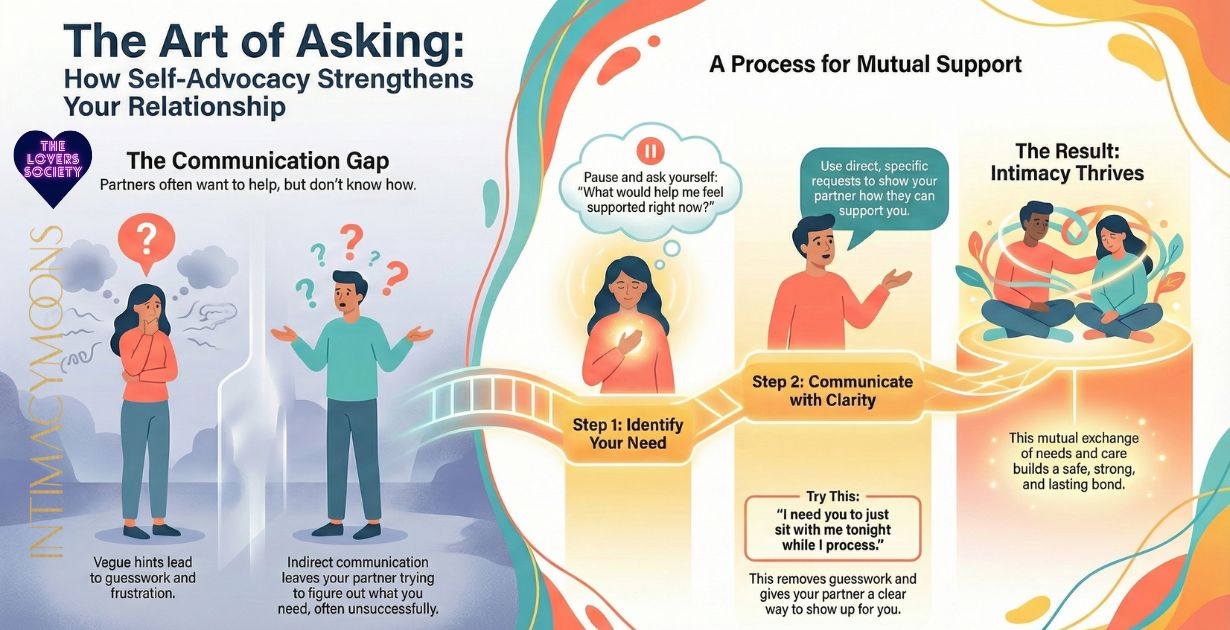- couples therapy retreats
- RETREAT THEMES
- TRAVEL CONCIERGE
- THE LOVERS SOCIETY
- Blog
- Press


One of the most loving things you can do for your relationship is to advocate for yourself. Asking for what you need isn’t about being demanding—it’s about helping your partner understand you more deeply. When you learn to voice your needs clearly and compassionately, you’re not only taking care of yourself—you’re also strengthening the bond you share.
Sometimes the hardest part is figuring out what you need in the first place. You might feel off, overwhelmed, or upset but not know why. In those moments, pause. Ask yourself: What would help me feel supported right now?
It could be something simple, like wanting quiet company after a stressful day. Or it might be bigger, like needing encouragement as you navigate a personal challenge. Becoming aware of your needs is the first step to communicating them.
Once you know what you need, clarity is key. Vague hints often leave your partner guessing—and guessing wrong. Instead, try speaking directly:
Notice how these requests are specific. They take away the guesswork and give your partner a clear way to show up for you.
It’s not only about asking for support—it’s about showing your partner what support looks like to you. That transparency reduces stress for both of you and makes it easier for your partner to meet you where you are.
In most relationships, the problem isn’t that partners don’t want to support each other. It’s that they’re unsure how. That gap can only be bridged through open communication.
Encourage your partner to share their needs as well. Listen fully when they speak, and resist the urge to jump in with fixes right away. Active listening, paired with honest sharing, creates a culture where both of you feel safe to be vulnerable.
Advocating for yourself is not a sign of weakness—it’s a sign of courage and care. It shows you trust your partner enough to be honest about what you need. And it gives your partner the chance to love you in the way you long to be loved.
Strong, lasting relationships are built on this mutual exchange: I see you, I hear you, I’m willing to meet you. And when both partners can speak their needs and respond with care, intimacy doesn’t just survive—it thrives.
Emotional Safety & Communication
Communication in Relationships, Partner Support, Relationship Building
Back to Blog
